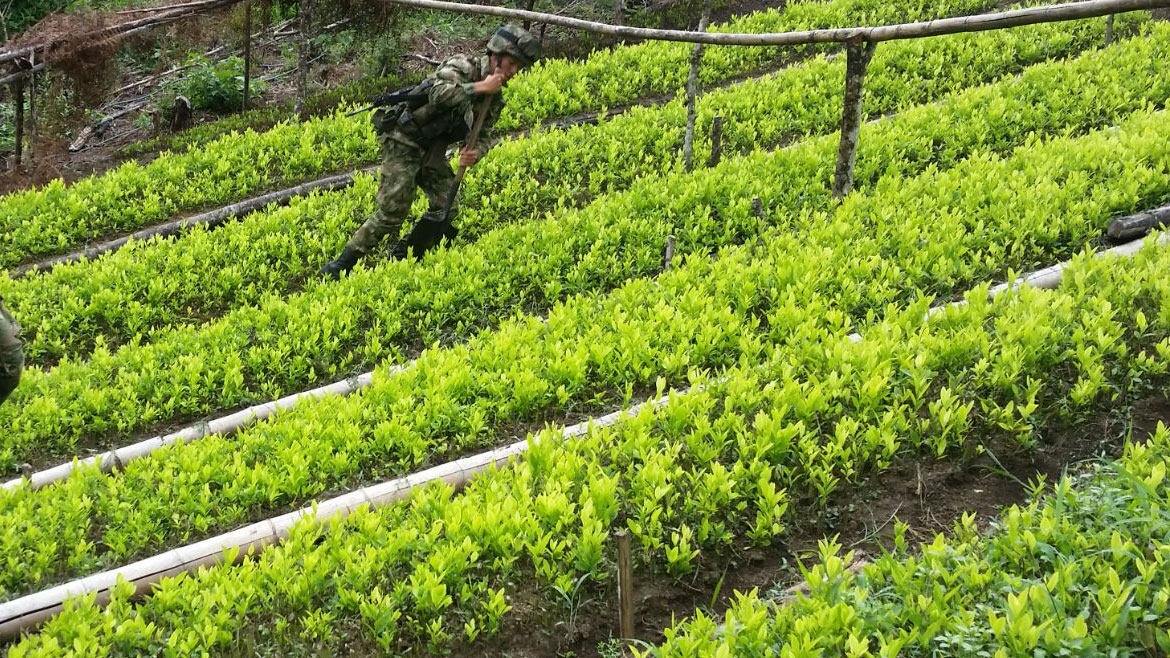
Colombia may resume use of glyphosate to curb coca cultivation
- Colombia
- abril 10, 2025
- No Comment
- 49
Colombia’s counternarcotics police may resume the use of the controversial herbicide glyphosate in efforts to reduce the illegal cultivation of coca.
According to documents released by Bogota councilmember Julian Sastoque, the National Police’s counternarcotics unit has been making inquiries about the purchase of glyphosate.
I am kindly and respectfully requesting your opinion as to whether you have a framework agreement or form of contracting for the acquisition of agrochemicals for the reactivation of the program for the eradication of illicit crops by spraying glyphosate on the ground.
Counternarcotics police document
According to Defense Minister Pedro Sanchez, the government prioritizes voluntary crop substitution programs, but “we are advancing in parallel in a contracting process” that would allow the resumption of manual spraying as a back up.
“Hopefully the substitution works so well that it won’t be necessary to use this method,” Sanchez told press on Wednesday.
President Gustavo Petro denied local press reports that claimed that the government had already ordered the resumption of the use of glyphosate.
On Thursday, the president said that “only after complying with the peasants in the region will another type of action for industrial crops be evaluated.”
Petro stressed that “there will be no aerial spraying” and stressed that uprooting coca bushes “is more definitive and is healthier than fumigating leaves and stems.”
The Constitutional Court banned the use of glyphosate in counternarcotics in 2015 and imposed major restrictions on the possible resumption of spraying chemicals.
Former President Ivan Duque announced the resumption of glyphosate spraying more than seven times, but failed to get the necessary court permissions to escalate efforts to get rid of coca cultivations.
According to the UNODC, 253,000 hectares of Colombian farmland were used for the cultivation of coca in 2023.
Petro said that the government hope to eradicate more than 30,000 of these hectares with the help of the growers this year.




